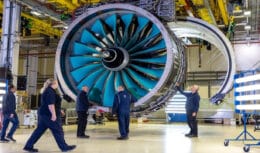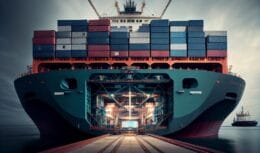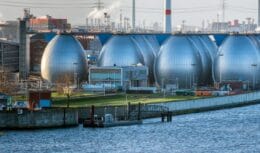
During an FGV event, specialists discussed why the privatization of Brazilian ports and the transition of the shipbuilding industry are positive for the economy
On July 21 of that year, FGV held a live event through its YouTube channel, with the theme of port privatization and the transition of the shipbuilding industry, with the participation of Fábio Abrahão (Director of Infrastructure, Concessions and BNDES PPPs), Patrícia Lascosque (Superintendent of Ports at Suzano and President of the Association of Private Port Terminals – ATP) and Ricardo Arten (CEO of Brasil Terminal Portuário – BTP and Member of the Board of the Brazilian Association of Container Terminals – ABRATEC).
Read also
Privatization of Ports and transition of the naval industry
As previously stated by the Ministry of Infrastructure, the next frontier for the port sector is the search for a more effective model with Privatizations, with flexibility and expanding the competence of investments through private resources for the logistics of Brazilian ports and preparing the ground for the transition of the marine industry.
Therefore, Privatizations would be a definitive watershed in this process and the initiation of studies for the privatization of ports, for example, the port of Santos, which is responsible for 28% of the Brazilian trade flow.
Development and Modernization of the Naval Industry and Brazilian Ports
The development and modernization of Brazilian ports and the naval industry are of paramount importance for the country's economic growth, given that the demand for maritime trade will triple between 2015 and 2050, in accordance with projections by the Organization for Cooperation and Economic Development (OECD), and ships will account for more than 75% of the world's cargo transport.
Currently, the waterway mode is responsible for more than 13% of the cargo transport matrix in Brazil, through the National Transport Confederation (CNT) – with around 9% of cabotage and 5% of river transport.
A simulation was carried out for the year 2025, the National Logistics Plan (PNL), of the federal government, states that there will be a return to the balance of the cargo transport matrix, with special emphasis on strong investments in railroads, however, water transport, cabotage and river transport, will remain at the current level and can be boosted with privatizations.











